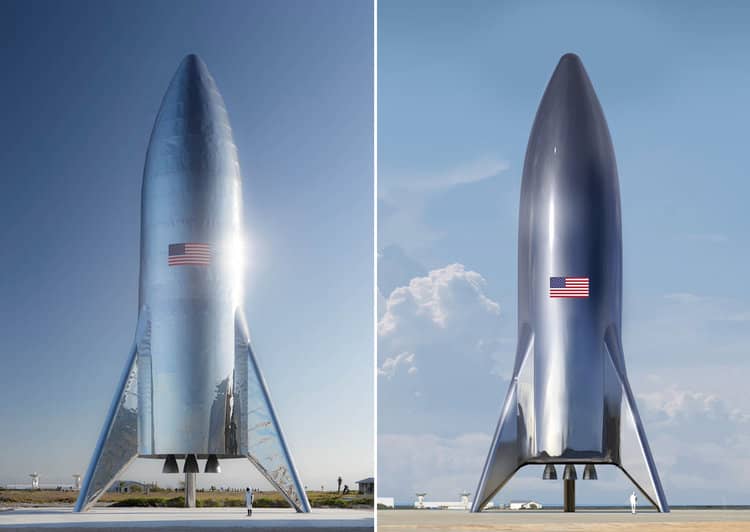SpaceX is building a big rocket using stainless steel. This would be the first time that stainless steel is being used for spacecraft construction since the attempts made during the Atlas program back in the 1950s. The spacecraft that is being built using stainless steel is the SpaceX Starship.
The carbon fiber that made the body of the Starship rocket (previously known as Big Falcon Rocket) and the super heavy booster is to be replaced with 300-series stainless. Elon Musk tweeted a picture of the test version of the Starship on 10th January. It is basically a prototype that is capable of suborbital VTOL (vertical take-off and landing) and attaining a height of 16,400. Elon Musk dubbed them as ‘hops.’
In an interview, Musk told that the design of the Starship and the Super Heavy rocket booster I have been changed to incorporate a unique alloy of stainless steel. He agreed that this sound counterintuitive and that he had trouble convincing his team to go into this direction. However, he was certain that the team was convinced now. According to Musk, the team was pursuing an advanced carbon-fiber structure. However, the process was slow and also cost $136 per kg. Not to mention the 35% scrap rate.
In comparison, stainless steel is much cheaper. Although it is not the lightest material, looking at the properties of the high-quality stainless steel, you wouldn’t be able to tell that its strength is boosted by 50% at cryogenic temperatures. Steel also has a high melting point. In fact, it has a melting point that is higher than that of aluminum. For instance, with aluminum or carbon-fiber, you can perhaps take it to 300-400 Fahrenheit. However, with steel, you can easily manage 1500 to 1600 Fahrenheit.
Elon Musk believes that by making use of stainless tell, the schedule for the Starship will be accelerated. The steel is not only easy to work with but also costs $3 per kg as opposed to about $200 per kg of carbon fiber (accounting for the 35% scrap).

